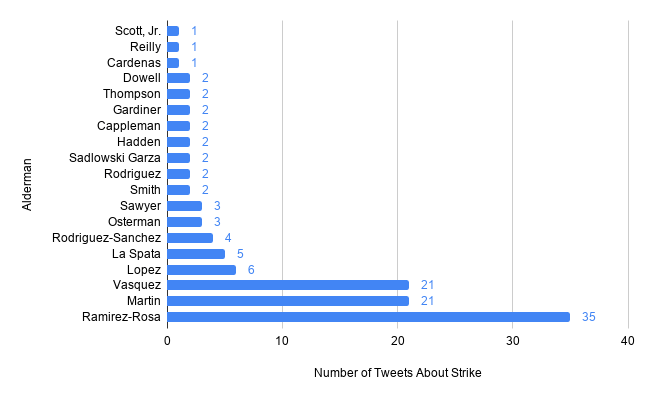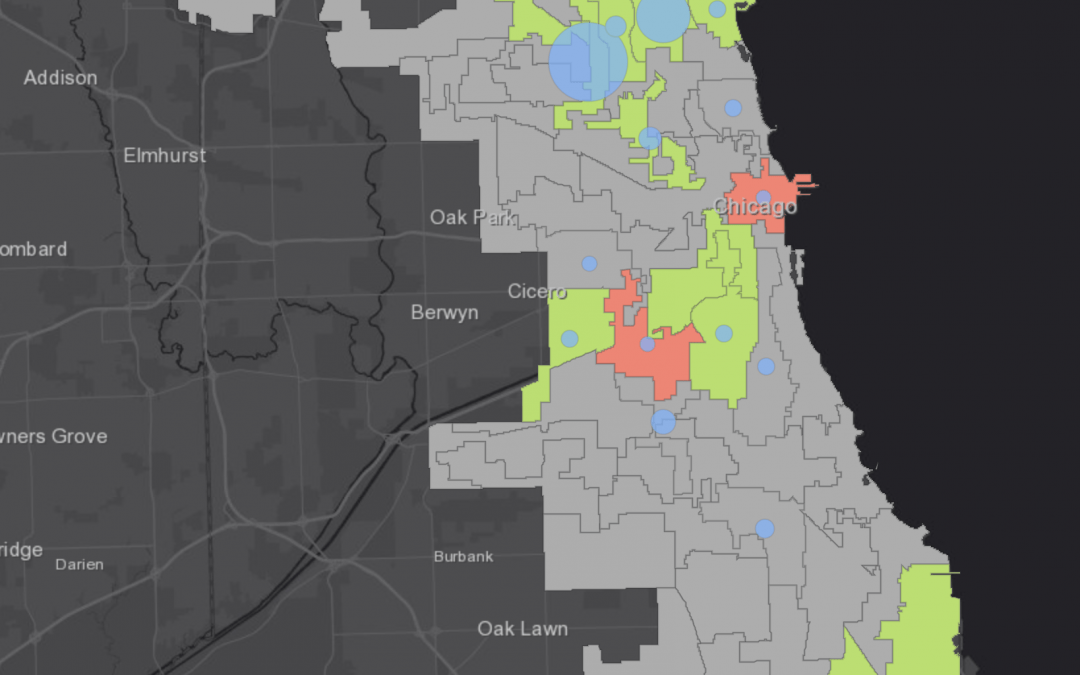(Co-authored with Jacob Wu and Nicholas Welch)
Over the weekend, the politics of the Chicago teachers strike went national as local legend and noted hometown booster Chance the Rapper sported CTU gear as host of Saturday Night Live. The strike is now in its second week, with negotiations between the union and Chicago Public Schools (CPS)/city administration still at loggerheads over some major issues.
Chicago’s school politics have been front and center since at least wave of school closures implemented by Mayor Emanuel in 2012-13. Since then, Chicagoans (especially those most affected by the closures) have tended to express support for the Chicago Teachers Union’s (CTU) position on school board reorganization, among other things. In a publicly salient, contentious policy struggle like this, the outcome will depend not only on narrow budgetary factors but public opinion and how other political leaders perceive the strike. Moreover, Mayor Lori Lightfoot is in her first term as an elected official, and did not emerge from a clear political organization within the city, so this is an early opportunity to assess the coalitional dynamics in a new, possibly more unpredictable, era in Chicago politics. In this post, we’ll take a quick look at the politics of the strike by examining what members of the City Council have said about it on Twitter and how Chicagoans feel about the CTU and school board.
On Social Media: Not Much Opposition to CTU, but Lots of Silence
Generally, Twitter activity from city council members on the CTU has been relatively muted. The interactive map above reports the number of original strike-related tweets by city council (shown in blue) and their expressed support (green) or opposition (red). The city’s north and west sides had the strongest showings as of October 24. Click here to explore the map.
How have members of the city council engaged their constituents on this issue? On a contentious issue like the strike, many aldermen may have a hard time figuring out their position, and maybe therefore reluctant to take a strong stance one way or the other. This approach to representation is consistent with the famous machine admonition to “Make No Waves,” keeping constituents guessing about their representative’s position, but also not exposing the official to much criticism. On the other hand, a new wave of young and activist members may find social media a useful place to take clear stands, efficiently bring attention to key issues, and connect with Chicagoans. Let’s take a look at the data.
On Twitter, the most common position taken by Chicago’s city council has been “no comment.” Out of Chicago’s 50 council members (CMs), only 19 have explicitly mentioned the strike in a Tweet (one more has retweeted about it, but not posted his own; note that we collected this data as of Thursday, October 24, so it may be slightly behind now that Chano did his thing). More than half have avoided the subject entirely in this social media space (Six CMs don’t have a Twitter presence at all, but maybe that’s a story for another day).

Number of tweets posted by members of Chicago City Council about ongoing CTU strike (as of Thursday October 24). CMs who had not posted about the strike, or do not have Twitter accounts, not shown.
Among those who have written a post mentioning the strike, support for the CTU is much more common. 12 expressed explicit support for the CTU, 2 posted Tweets that appeared to lean toward CPS, and 5 managed to not express a position.
Some members took reserved approaches. CM Pat Dowell visited schools in her ward, and noted the issues without specifically aligning herself with either side.
Stepped out my door this morning to speak with striking teachers @ Mollison Elem. Also stopped @ Beasley Elem near my office. Concerns are classroom size & social supports. Parents want their children in school. Let’s get a contract done! More info-> https://t.co/zRCyUFSs5A pic.twitter.com/TYVjz1vJFn
— Alderman Pat Dowell (@AldPatDowell3rd) October 17, 2019
Alderman George Cardenas asked for CPS to end the strike, referencing the inconvenience that a prolonged strike puts on low-income, working families. Alderman Daniel La Spata advertised free lunches for CPS students at his ward office. Others still lamented a lack of action. Alderman Brandon Reilly argued that the strike was in part due to a lack of action in state government, in a retweet of a state representatives presenting the downsides of a strike for student learning and extracurricular groups.
Ramirez-Rosa, the most prolific pro-CTU tweeter on City Council, reveled in what he saw as a wave of support for the CTU. He namedropped three Democratic presidential candidates and Chance the Rapper as supporters of the CTU, jabbing at Department of Education Secretary Betsy DeVos and “random suburban bros” for their support of CPS.
Siding with @CTULocal1 on contract fight: @BernieSanders, @ewarren, @JoeBiden, @chancetherapper, majority of Chicagoans (particularly CPS parents & students)
Siding with @chicagosmayor & @janicejackson: Trump's Secretary of Ed @BetsyDeVosED, random suburban bros on Twitter
— Ald. Carlos Ramirez-Rosa🌹 (@CDRosa) October 30, 2019
What’s a “Progressive” to do?
Perhaps the most interesting dynamic to watch is the positions taken by the 18 members of the Chicago Progressive Caucus, a group of CMs that has coalesced and grown over the last decade. The progressive caucus initially formed as an opposition bloc against some of the more business-focused and neoliberal policy impulses of the Daley and Emanuel administrations. The CTU was a central player in building this coalition. When Lightfoot unexpectedly won election earlier this year, running under a banner of progressive leadership and governance, some caucus members gained new positions of institutional power in the city council.
On the other hand, the CTU and many progressive unions did not endorse Lightfoot, and many members of the progressive caucus have close ties to these groups. In part because there is no clear definition of what “progressive” means, and because they are more a group of affinity rather than a formal party or alliance, the caucus members are not as cohesive on contentious issues. Much of this group may now see some of their allies sitting across the table from a mayoral candidate they previously supported.
Among the 18 members of the Progressive Caucus, 9 have posted (all in support of the CTU), and 9 have not. Among the latter is Scott Waguespack, who is closely allied with Mayor Lightfoot as her finance chair (another of the “silent” members of the prog caucus is Byron Sigcho-Lopez, who hasn’t posted himself but re-tweeted pro-CTU messages). Waguespack may be particularly reluctant to make waves. On the other hand, in the first figure above, there were three CMs in particular who stood out as actively supporting strike on Twitter: Ramirez-Rosa, Martin, and Vasquez. Each of these is a young, relative newcomer to the council, but they have also been particularly vocal on a range of contentious issues. Elsewhere, we’ve noted how making waves can help a CM’s message go viral, raising their profile and often mobilizing supporters to a new issue.
This moment in Chicago reflects has all the hallmarks city government challenges: contentious politics in the streets; very difficult policy questions; fiscal scarcity; uncertain political alliances; and change, change, always change. The mixed messages and surprising silences of Chicago’s city council reflect this uncertain moment.


You must be logged in to post a comment.